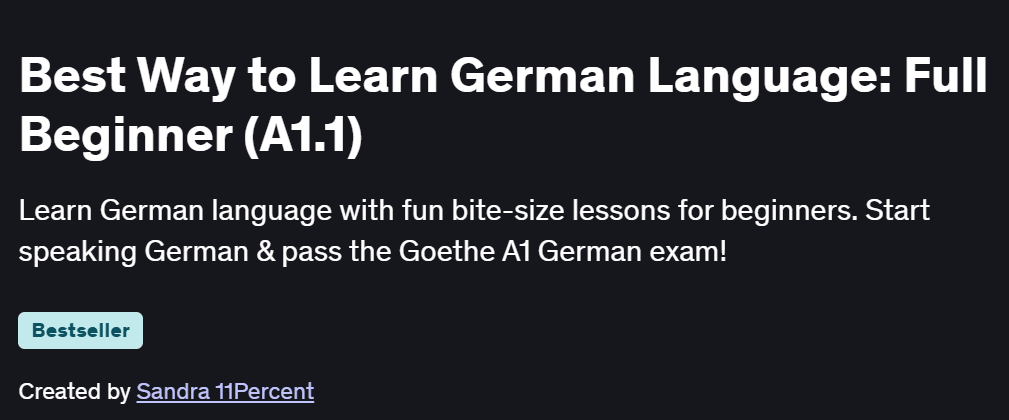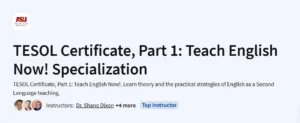What will you learn in this Best Way to Learn German Language: Full Beginner (A1.1) Course
Master essential German phrases and vocabulary for everyday situations.
Understand basic German grammar and sentence structure.
Develop pronunciation skills through repetition and practice.
Build confidence in speaking and writing German from the first lesson.
Prepare for the Goethe-Zertifikat A1 examination.
Program Overview
Introduction to German
⏳ 1 hour
- Overview of the German language and its global significance.
- Introduction to the course structure and learning methodology.
- Setting realistic goals for learning German.
Basic Vocabulary and Phrases
⏳ 1 hour
Learning common greetings and expressions.
Understanding essential nouns and verbs.
Practice forming simple sentences.
Pronunciation and Accent
⏳ 1.5 hours
- Focus on German pronunciation rules.
- Techniques to mimic native German speakers.
- Exercises to improve listening and speaking skills.
Grammar Fundamentals
⏳ 2 hours
- Introduction to basic German sentence structure.
- Understanding gender and number agreement.
- Basic conjugation of regular and irregular verbs.
Building Conversations
⏳ 1.5 hours
Techniques to initiate and maintain simple conversations.
Role-playing exercises to simulate real-life scenarios.
Strategies to overcome common speaking challenges.
Review and Practice
⏳ 1 hour
Review of key concepts and vocabulary learned.
Practice sessions to reinforce speaking skills.
Tips for continuing German learning beyond the course.
Get certificate
Job Outlook
Proficiency in German opens opportunities in various fields such as translation, education, tourism, and international business.
German-speaking professionals can work in Germany, Austria, Switzerland, and many other countries, earning competitive salaries.
Freelance opportunities include tutoring, content creation, and translation services.
Specification: Best Way to Learn German Language: Full Beginner (A1.1) Course
|
FAQs
- No prior knowledge of German is required.
- The course is designed for complete beginners.
- Lessons start with alphabets, sounds, and basic words.
- English explanations make learning easier.
- Anyone curious about German can begin directly.
- At least 3–5 hours per week is recommended.
- Daily short practice is more effective than long weekly sessions.
- Consistent listening and speaking boosts retention.
- Extra practice with apps or flashcards helps.
- Progress depends on regular exposure, not just lessons.
- Yes, it introduces vocabulary and grammar required for A1 exams.
- Covers basic speaking, listening, reading, and writing.
- Provides practice for real-life scenarios tested in exams.
- Useful as a first step before exam-focused practice.
- Additional exam prep may be needed for test strategies.
- You’ll manage simple greetings and introductions.
- Can ask and answer basic personal questions.
- Handle everyday phrases for shopping or travel.
- Conversations will be short and simple.
- Fluency requires further A1.2 and A2 levels.
- Join online German speaking clubs or language exchanges.
- Use apps that connect learners with native speakers.
- Practice with voice recording and playback.
- Watch German shows with subtitles and repeat phrases.
- Consistency in speaking out loud matters more than location.





